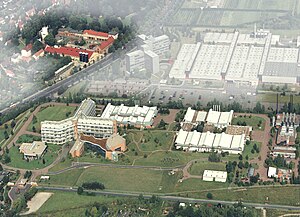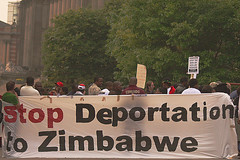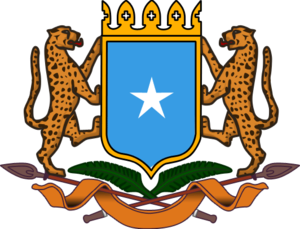Source:
ILGA-Europe
Workshop held at the ILGA Europe Annual Conference , Vienna, 30 October - 2 November 2008
By Sabine Jansen,
COC Netherlands
I would like to start with some explanation and a few remarks on the Conventions that apply to LGBT asylum seekers in Europe. After that I will give two examples of issues in asylum policy that form specific obstacles to LGBT people. Then I will say something about two recent cases that are important for the Netherlands and maybe for other European countries as well.
Convention matters
In theory LGBT asylum seekers who flee for reasons related to their sexual orientation or their gender identity in most European countries could qualify for asylum. In the Netherlands this is case-law since 1981. There are two possible ways.
To qualify for a refugee-status under the 1951 Refugee Convention (the Geneva Convention) one should have a well-founded fear of being persecuted for one of the grounds mentioned in this convention: race, religion, nationality, political opinion or membership of a particular social group. Although ‘Sexual orientation’ or ‘gender identity’ are not explicitly mentioned in the Convention, LGBT people can be seen as ‘members of a particular social group’, who share a common characteristic and have a distinct identity due to the perception in the society of origin. On this ground they should be protected against persecution by the Refugee Convention.
The second way in which LGBT people could obtain asylum is a status based on Article 3 of the
European Convention on Human Rights, that forbids to send someone to a situation where he or she has a ‘real risk’ of being subjected to ‘torture or an inhuman or degrading treatment or punishment’. This is also called ‘subsidiary protection’.
These two asylum statuses are also described in the EU Refugee Status Directive, that has been adopted by the EU member states and came into force in 2004.[1] It contains minimum standards: states are allowed to give more protection than is prescribed by the Directive.
The Directive should have been implemented in your national legislation since October 10th 2006. Now that this date has expired, people can call upon the Directive itself in the national procedures. The national judge should then apply European law.
The Refugee Directive says in Article 10 explicitly that ‘depending on the circumstances in the country of origin, a particular social group might include a group based on a common characteristic of sexual orientation.’ National legislation of the EU member states must therefore include in the ground ‘particular social group’ the possibility of groups based on sexual orientation .
Article 10 continues: ‘Sexual orientation cannot be understood to include acts considered to be criminal in accordance with national law of the Member States.’ I do not understand the intention of this phrase. It resembles Country Reports with sentences like: ‘Homosexual acts are punishable by law, the penalty is three years of imprisonment. The penalty on homosexual acts with a minor against his will is seven years.’ We would call this ‘rape’ or ‘child abuse’ instead of homosexuality. This kind of information does not belong in a Country Report chapter on the situation of LGBT people. Why would the Directive describe criminal sexual orientation acts? To exclude criminal asylum seekers one could apply other articles of the Directive.
When I did research on the legal position of homosexual asylum seekers in the Netherlands, I identified several problems, of which I will now describe two examples. If you want more information about these issues, I could send you the article I wrote, although an extra problem is, that it is in Dutch.[2]
State protection against non-state actors
Sometimes LGBT people flee their country of origin, because they are persecuted directly by the authorities. But more often the persecutors are so-called ‘non-state actors’, family, neighbours etc. For a long time the idea was that a real refugee is someone who is politically active and persecuted by the state. So women and LGBTs, who often flee because of violence by sexist or homophobic non-state agents, did not fit this image. It is very important that the Directive explicitly recognizes non-state actors as actors of persecution or serious harm.
When a LGBT person is so mistreated by non-state actors that he or she decides to leave the country in search of safety elsewhere, one of the questions that is posed by the Immigration officer is: ‘Did you go to the local authorities to ask for protection?’ Sometimes the answer is: ‘Yes, but they refused to help me’ and sometimes the answer is: ‘No, because I am afraid of the police’.
A gay man from Algeria fled to the Netherlands after he was gang-raped by fifteen ‘civilians’. His asylum claim was refused, because he should have asked the Algerian police to protect him. He did not do so, because a few years earlier he was raped by a police officer and in Algeria homosexuality is punishable with three years imprisonment. According to Dutch Immigration officers the first rapist was just one policeman and he could have asked help from other or higher authorities. It’s true that homosexual acts are criminal in Algeria, they argued, but rape is too. Finally they granted him asylum, but this took almost four years of procedures.
In general, people fleeing because of persecution by non-state actors are supposed to seek protection in their home state first. Though in my opinion it is not reasonable to expect from an LGBT person to turn to the police for protection in a country where homosexuality is a crime or where the general atmosphere is homophobic.
Article 6 of the Refugee Directive states that actors of persecution include non-state actors, ‘if it can be demonstrated that the State is unable or unwilling to provide protection’. But who has to demonstrate this, on whose shoulders is the burden of proof? The general answer is: ‘the asylum seeker’, but I think the burden of proof should be on the receiving state. The state should first demonstrate that the authorities of the country of origin are in general able and willing to offer protection to LGBT people, before expecting the asylum seeker to turn to the police.
There is support for this idea in the Refugee Directive. Article 7 of the Directive says that protection is generally provided, when the state takes reasonable steps to prevent the persecution. The state should operate ‘an effective legal system for the detection, prosecution and punishment of acts constituting persecution’ and the applicant should have access to such protection. In homophobic societies this kind of protection will seldom be available. So, when someone was persecuted by homophobic non-state actors in the state of origin, you could try to refer to the Directive.
The right to privacy or private life
In 1981 the European Court of Human Rights (ECHR) decided that the provision that criminalized homosexuality in Northern Ireland was a violation of the right to privacy in Article 8 of the European Convention on Human Rights (ECHR).[3] This decision was followed by similar judgements on the criminalization of homosexuality in Ireland and Cyprus.[4]
The only time a gay asylum case was decided upon by the European Court of Human Rights was in 2004 when the Court judged the case of a gay man from Iran who sought asylum in the UK. The Court rejected his claim at the right to private life in Article 8 of the Convention. Although homosexuality is a crime in Iran, this does not mean that deportation of a person to this country is a violation of Article 3 or 8 of the ECHR. Iran is outside the European Union and this country is not a party to the European Convention.[5]
Decision-makers sometimes argue that gay people will not be persecuted as long as they act discreetly or are not openly gay. And of course, if all LGBT people would stay in the closet completely, there would probably be no harassing, rape, ill-treatment, murder, torture or discrimination of LGBTs. The Netherlands recently adopted the policy not to use this argument anymore, but for instance the UK still does: The British Home Secretary said that ‘Gay and lesbian asylum-seekers can be safely deported to Iran as long as they live their lives "discreetly".’[6]
The advice to act discreetly upon return is a violation of the right to privacy and ‘the right to privacy includes the choice to disclose or not to disclose information relating to one’s sexual orientation or gender identity’, as the Yogyakarta principles state.[7] The Michigan Guidelines say: An individual shall not be expected to deny his or her protected identity or beliefs in order to avoid coming to the attention of the state or non-governmental agent of persecution.[8]
In the case Bensaid v. UK (2001) the European Court of Human Rights stated that ‘private life’ is a broad term and that gender identification, name, sexual orientation and sexual life are important elements of the personal sphere protected by Article 8 ECHR. It might be a good idea for people in the UK to start a procedure at the ECHR stating that the claim to act discrete is a violation of the right to privacy protected by article 8 ECHR. And the Dutch Government should convince other European members to follow their policy not to expect LGBT people to live discreetly.
Two recent cases
A case that attracted a lot of attention in the EU was the case of Mehdi Kazemi from Iran. He first applied for asylum in the UK, after he had heard that his boyfriend was executed in Iran and he feared the same fate. Nevertheless, his case was refused. Then he fled to the Netherlands. The Netherlands has the policy to grant asylum to all LGBT people from Iran, but Mr. Kazemi’s asylum claim was refused again because of the Dublin Convention, which prevents application for asylum in more than one EU country. He was sent back to the UK. After a lot of protests and demonstrations from several LGBT-organisations in the UK and the Netherlands and a resolution from the European Parliament, Kazemi was finally granted asylum in the UK. To avoid this kind of Dublin cases in the future the Dutch Government should export the policy to grant asylum to LGBT people from Iran.
There was also the case of the Iranian lesbian Pegah Emambakhsh, whose partner was sentenced to death by stoning. The last report on her situation dates from last March, when she was still in the UK, fearing deportation to Iran. I wonder if anybody knows what has happened to her?
Last year the case of mr. Salah Sheekh from Somalia against the Netherlands was decided upon by the European Court of Human Rights.[9] He won the case because according to the Court his expulsion to Somalia would be in violation of article 3 of the Convention. Mr Sheekh was a member of the Somali clan of the Ashraf, and as a result of this the Netherlands had to change the asylum-policy. We now have two new categories: ‘vulnerable minority groups’ and ‘groups at risk’. Vulnerable minority groups are for instance single women in Afghanistan and Christians in Iraq. Their burden of proof is much lower. A few days ago, in a meeting with Dutch government officials we heard that they plan to recognize homosexuals from Iraq and Afghanistan as ‘groups at risk’. If these asylum seekers pass an individual examination with limited evidence, they will get a refugee-status. So that is good news, although it has a somewhat bitter taste, because very recently the categorical protection for asylum seekers from Central Iraq was ended.
This summer the European Commission presented a policy plan on asylum, as part of the creation of a Common European Asylum System (CEAS). One of the overarching objectives of this CEAS is to incorporate gender considerations and take into account the special needs of vulnerable groups. I don’t know if ILGA is already creating LGBT input in this harmonisation process, but I think this would be a good idea.
I would like to end with a subject that is, as far as I know, in the Netherlands hardly an issue: Immigration sometimes does not believe someone to be gay. Here in Vienna for instance I heard that lesbian women from Zimbabwe are denied asylum in the UK, because they have children and for that reason are not believed to be gay. And I also heard the story of a man from Azerbaijan, who sought asylum in the Czech republic. To test his gayness the Czech authorities showed him porn-videos, while putting a device around his penis, to measure his reaction to the porn. This is a gross violation of human rights and if this is true, human rights organisations should send a fierce protest to the Czech authorities.
Anyhow, I would be very interested to hear how the situation of LGBT asylum seekers is in other EU-countries. So I hope we can exchange ideas and experiences in this workshop or during this conference.
[1] Directive 2004/83/EC on minimum standards for the qualification and status of third country nationals or
stateless persons as refugees or as persons who otherwise need international protection and the content of
the protection granted, (2004) OJ L304/12.
[2] ‘Op de vlucht voor homohaat, over discriminatie en discretie’, Nieuwsbrief Asiel- en Vluchtelingenrecht 2006, nr. 3, p. 124-146.
[3] ECHR, Dudgeon v. United Kingdom, 22 October 1981, 7525/76.
[4] ECHR, Norris v. Ireland, 26 October 1988, 10581/83; ECHR, Modinos v. Cyprus, 22 April 1993, 15070/89.
[5] ECHR, F. v. United Kingdom, 22 June 2004, 17341/03.
[6] The Independent, 23 June 2008.
[7] The Yogyakarta Principles on the Application of International Human Rights Law in relation to Sexual Orientation and Gender Identity, March 2007.
[8] The Michigan Guidelines on Nexus to a Convention Ground, University of Michigan Law School, Ann Arbor USA, March 2001.
[9] Salah Sheekh v. The Netherlands, 11 January 2007, 1948/04.















![Reblog this post [with Zemanta]](http://img.zemanta.com/reblog_e.png?x-id=ff33406c-45b4-4a14-843f-756e467640aa)


![Reblog this post [with Zemanta]](http://img.zemanta.com/reblog_e.png?x-id=6b6ca114-38b1-4692-a49b-247dac9f4dd2)

![Reblog this post [with Zemanta]](http://img.zemanta.com/reblog_e.png?x-id=8764ec5a-f81e-44c2-b4df-4316b260fb99)

![Reblog this post [with Zemanta]](http://img.zemanta.com/reblog_e.png?x-id=2814790e-5dd6-408a-a123-04fe189bd2ba)





 Join our page
Join our page

